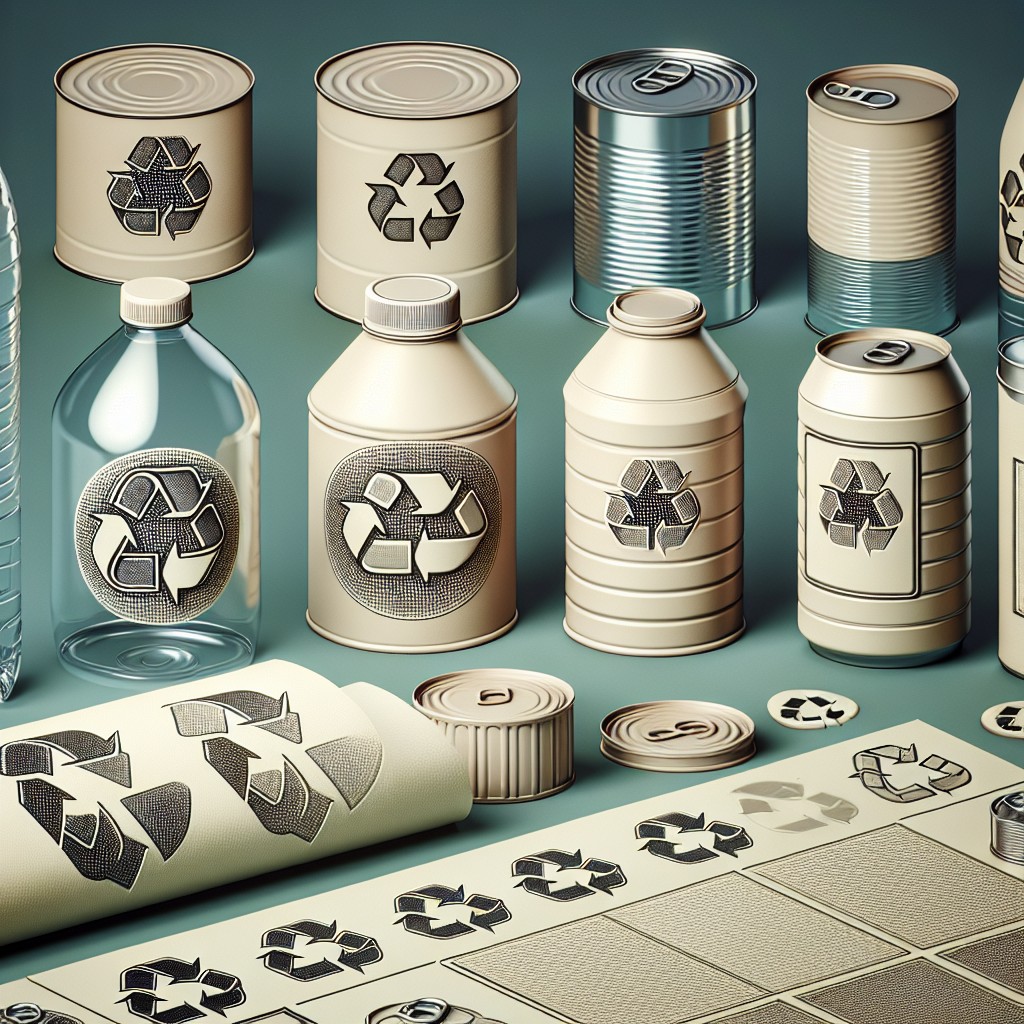Last updated on
In this informative article, you will learn about the recyclability of latex gloves and factors that might influence it.
Key takeaways:
- Latex gloves are often not recyclable due to contaminants and mixed composition.
- Challenges in recycling latex gloves include contamination risks and limited facilities.
- Best practices for recycling latex gloves include checking with local waste management and separating them from standard recyclables.
- Eco-friendly alternatives to latex gloves include biodegradable gloves, reusable gloves, and gloves made with recycled content.
- Donating unused latex gloves can reduce waste and benefit communities.
Latex Gloves Composition and Recyclability
Latex, a natural rubber derived from the sap of rubber trees, is the primary material in most disposable gloves. Its resilience, flexibility, and biodegradability make it a favored choice in medical settings and industries that require protective hand coverings. However, the path to recycling latex gloves is not straightforward.
The presence of contaminants, such as biological matter or chemicals from their use in various environments, complicates the recycling process. These impurities must be removed before the material can be repurposed, which requires specialized facilities that may not be widely available. Additionally, the mixed composition of some gloves, which can include powders or synthetic materials for strength and elasticity, also hinders the traditional recycling methods.
Moreover, the relatively low weight and high volume of latex gloves pose logistical challenges in collection and transportation to recycling facilities, making the recycling process less economically viable than for other materials. Consequently, latex gloves are often designated for the landfill, where their biodegradability is an advantage, yet their decomposition could still take a considerable amount of time, depending on environmental conditions.
Understanding these factors helps frame the challenges and potential for latex gloves in the recycling stream, underscoring the need for innovative solutions and alternative approaches to manage their end-of-life impact.
Challenges in Recycling Latex Gloves
Recycling latex gloves is fraught with complexities due to their material and health safety concerns. Here’s why they pose a challenge:
- Contamination Risks: Used in healthcare and food services, they often come into contact with biological waste and contaminants, making safe recycling difficult.
- Material Composition: Latex is a natural rubber, but can be mixed with other materials to enhance properties, complicating traditional recycling processes.
- Sorting Difficulties: With no clear system to separate latex gloves from other waste, they often end up neglected in the recycling chain.
- Degradation Issues: When latex degrades, it can release potentially harmful substances, which recyclers must carefully manage to avoid environmental harm.
- Limited Facilities: Not all recycling centers are equipped to handle latex, further reducing the chances that gloves will be recycled properly.
Navigating these challenges requires innovation in recycling technology and changes in usage behavior to reduce waste and increase sustainability.
Best Practices for Recycling Latex Gloves
To ensure the most effective recycling of latex gloves, follow these guidelines:
- Check with local waste management: Before disposing of latex gloves, inquire with local recycling programs about their capacity to handle latex. Some facilities may have special programs or partnerships with recycling companies that can process these materials.
- Clean before recycling: If a program accepts latex gloves, ensure they are free from contaminants. This typically involves rinsing them to remove any adhering substances, but be sure to follow specific instructions from your recycling provider.
- Separate from standard recyclables: Latex gloves should never be mixed with conventional recyclables like paper or plastic bottles. They require a different recycling process and can contaminate other recyclables if not separated.
- Use dedicated recycling bins: If your local facility has a program for gloves, they may provide specific containers for collecting them. This helps to avoid contamination and streamlines the recycling process.
- Consider mail-in programs: Some companies offer mail-back recycling programs for latex gloves. These programs usually require you to collect a certain amount of material before sending it back to the company for recycling.
- Encourage institutional recycling: In settings like laboratories or medical facilities where glove usage is high, advocate for institutional recycling programs that can deal with large volumes of latex gloves. These programs can make a significant impact on reducing waste.
Adherence to these practices will help circumvent the complexities involved in the recycling process for latex gloves, bolstering sustainability efforts and minimizing environmental impact.
Eco-Friendly Options: Latex Gloves Alternatives
Switching to eco-friendly alternatives can reduce the impact of latex gloves on the environment. Here are some notable options:
- Biodegradable Gloves: Some companies manufacture gloves that can decompose under certain conditions much faster than conventional latex gloves.
- Reusable Gloves: Opt for durable, washable gloves made of materials like rubber or silicone, reducing the need for frequent disposal.
- Recycled Content Gloves: Gloves containing recycled materials lessen the demand for virgin resources and support the recycling industry.
- Cotton or Fabric Gloves: In situations where a high level of protection isn’t required, fabric gloves can be a sustainable choice as they’re reusable and easy to clean.
- Nitrile Gloves: For tasks that require disposable gloves, nitrile gloves are often preferred for their recyclability in specialized programs.
When considering these options, assess the necessity of glove use and select based on the task’s protection requirements and environmental impact.
Significance of Donating Unused Latex Gloves
Donating unused latex gloves can have a substantial impact on both the environment and communities. Redirecting surplus gloves to those in need helps prevent unnecessary waste and conserves resources, illustrating a harmonious balance between health priorities and environmental considerations.
Waste Reduction: By donating, you divert gloves from landfills where they would otherwise contribute to the growing issue of medical waste.
Resource Sharing: Sharing unused gloves can alleviate shortages in under-resourced settings, such as schools, non-profits, and developing countries.
Environmental Impact: Donation not only helps in waste reduction but also decreases demand for virgin materials, leading to less resource depletion and pollution from production processes.
Community Health: Proper protection for healthcare and sanitation workers can be ensured, helping to reduce the spread of infection and illness in vulnerable communities.
By opting to donate rather than discard, individuals and institutions take an active role in fostering sustainability and social responsibility.
FAQ
How do you dispose of latex gloves?
Dispose of latex gloves by placing them directly into a trash bin, ensuring to first identify whether they qualify as regular or hazardous waste based on potential contamination.
Do gloves go in recycle bin?
While latex, hybrid, and poly gloves are typically recyclable, and nitrile gloves occasionally qualify for the same, vinyl gloves should invariably be disposed of as waste.
Are latex gloves biodegradable?
Yes, latex gloves are biodegradable because they are made from a natural rubber compound.
What are the environmental impacts of latex glove disposal?
The disposal of latex gloves contributes significantly to environmental pollution through landfill waste build-up, threat to wildlife due to improper disposal, and carbon emission from incineration.
Can latex gloves be repurposed for other uses instead of being discarded immediately?
Yes, latex gloves can be repurposed for other uses such as cleaning, gardening, or even as small baggies for storage before they are ultimately discarded.
Is there a more sustainable alternative to single-use latex gloves?
Yes, reusable nitrile gloves are a more sustainable alternative to single-use latex gloves.
Related reading:
Table of Contents

